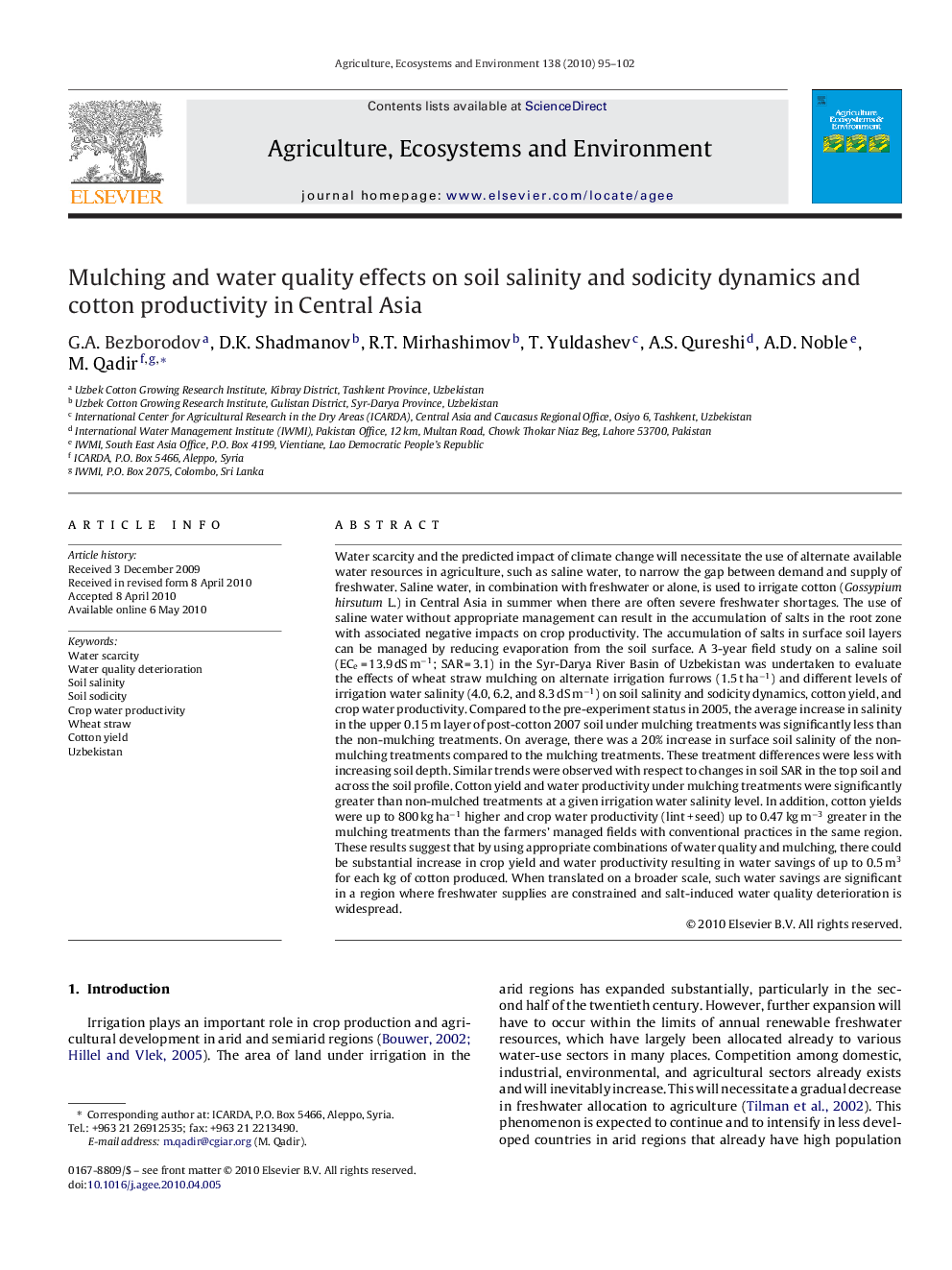| کد مقاله | کد نشریه | سال انتشار | مقاله انگلیسی | نسخه تمام متن |
|---|---|---|---|---|
| 2414876 | 1552114 | 2010 | 8 صفحه PDF | دانلود رایگان |

Water scarcity and the predicted impact of climate change will necessitate the use of alternate available water resources in agriculture, such as saline water, to narrow the gap between demand and supply of freshwater. Saline water, in combination with freshwater or alone, is used to irrigate cotton (Gossypium hirsutum L.) in Central Asia in summer when there are often severe freshwater shortages. The use of saline water without appropriate management can result in the accumulation of salts in the root zone with associated negative impacts on crop productivity. The accumulation of salts in surface soil layers can be managed by reducing evaporation from the soil surface. A 3-year field study on a saline soil (ECe = 13.9 dS m−1; SAR = 3.1) in the Syr-Darya River Basin of Uzbekistan was undertaken to evaluate the effects of wheat straw mulching on alternate irrigation furrows (1.5 t ha−1) and different levels of irrigation water salinity (4.0, 6.2, and 8.3 dS m−1) on soil salinity and sodicity dynamics, cotton yield, and crop water productivity. Compared to the pre-experiment status in 2005, the average increase in salinity in the upper 0.15 m layer of post-cotton 2007 soil under mulching treatments was significantly less than the non-mulching treatments. On average, there was a 20% increase in surface soil salinity of the non-mulching treatments compared to the mulching treatments. These treatment differences were less with increasing soil depth. Similar trends were observed with respect to changes in soil SAR in the top soil and across the soil profile. Cotton yield and water productivity under mulching treatments were significantly greater than non-mulched treatments at a given irrigation water salinity level. In addition, cotton yields were up to 800 kg ha−1 higher and crop water productivity (lint + seed) up to 0.47 kg m−3 greater in the mulching treatments than the farmers’ managed fields with conventional practices in the same region. These results suggest that by using appropriate combinations of water quality and mulching, there could be substantial increase in crop yield and water productivity resulting in water savings of up to 0.5 m3 for each kg of cotton produced. When translated on a broader scale, such water savings are significant in a region where freshwater supplies are constrained and salt-induced water quality deterioration is widespread.
Journal: Agriculture, Ecosystems & Environment - Volume 138, Issues 1–2, 15 June 2010, Pages 95–102